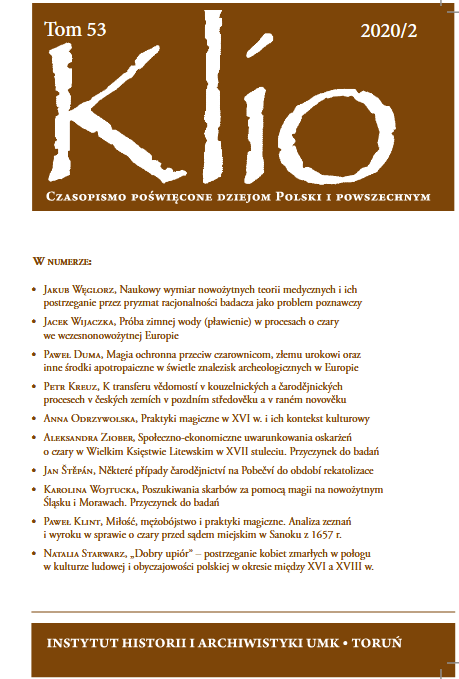Społeczno-ekonomiczne uwarunkowania oskarżeń o czary w Wielkim Księstwie Litewskim w XVII stuleciu.
Socio-economic bias in witchcraft accusations
in the Great Dutchy of Lithuania in the 17th century
Research remarks
Author(s): Aleksandra ZioberSubject(s): History, Cultural history, Modern Age
Published by: Wydawnictwo Naukowe Uniwersytetu Mikołaja Kopernika
Keywords: witchcraft; the Grand Duchy of Lithuania; the Polish-Lithuanian Commonwealth; society; economy; 17th century
Summary/Abstract: It is well known that socio-economic situation and changes in economics infected number of witchcraft accusations in early modern Europe. As Janusz Tazbir noted, social conflicts among peasants were strictly connected with witchcraft accusations in the Commonwealth of Poland, as well as the whole Europe. In the 17th century situation was particularly tense. Some conflicts resulted from the plague causing massive death of people or household, especially cattle. People these days did not know reasonable explanation for this phenomena, thus they accused lonely woman, very often these, who were involved in phytotherapy or simply living in remote places, excluded from the community, outstanding and unusual, whether it comes to behaviour or their look. These socio-economic processes were most probably the most common reasons of witchcraft accusations in Lithuania.
Journal: Klio. Czasopismo poświęcone dziejom Polski i powszechnym
- Issue Year: 53/2020
- Issue No: 2
- Page Range: 133-150
- Page Count: 18
- Language: Polish

